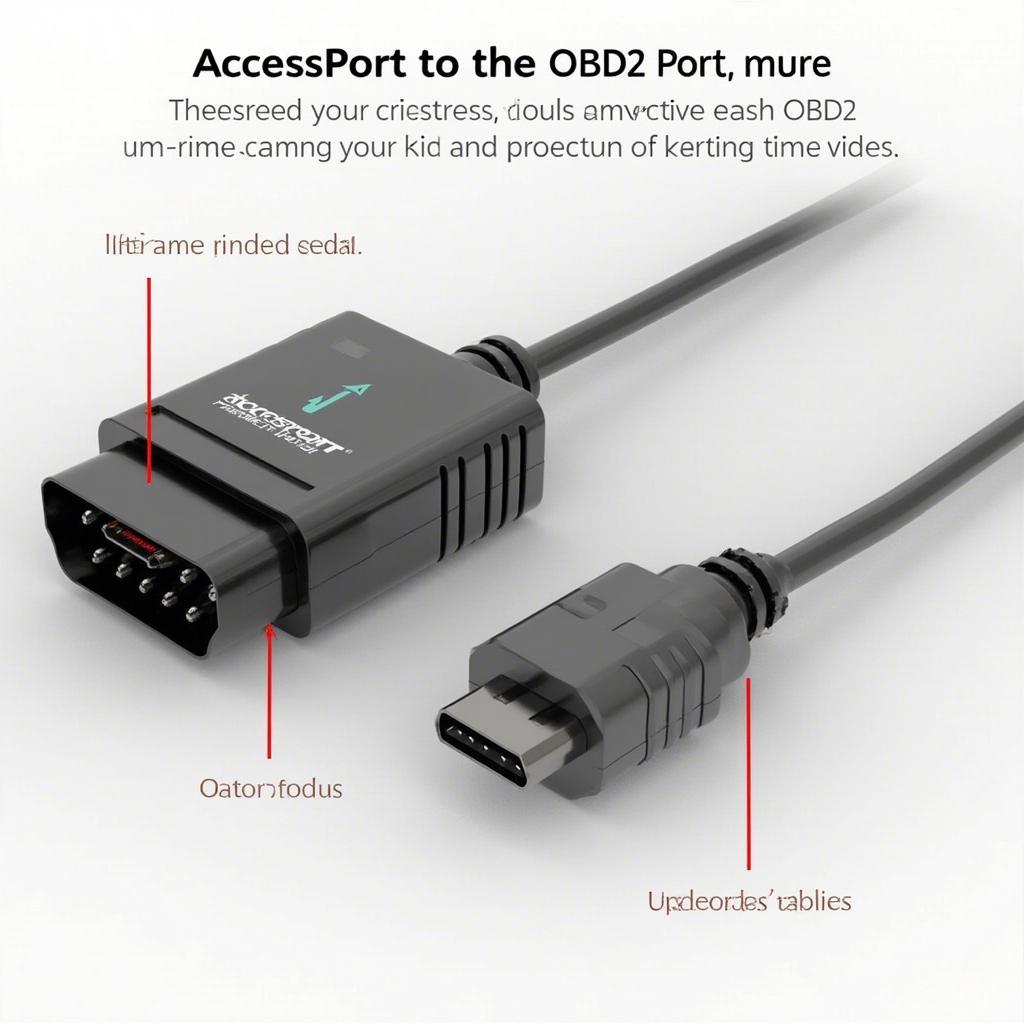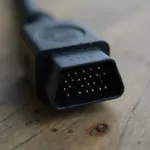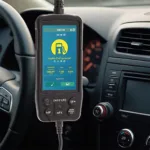If your AccessPort won’t detect the OBD2 port, you’re in the right place. This comprehensive guide explores common reasons why your AccessPort might not be communicating with your vehicle’s OBD2 system and provides practical solutions to get you back on track. We’ll cover everything from simple checks to more advanced troubleshooting steps.
Common Reasons Why Your AccessPort Won’t Detect OBD2
There are several reasons why your AccessPort might not be detecting your vehicle’s OBD2 port. Some of these are simple oversights, while others may require a bit more investigation. Let’s start with the easiest fixes first.
Is Your Vehicle Ignition On?
This might seem obvious, but it’s a common mistake. The OBD2 port often requires the vehicle’s ignition to be switched to the “on” position (not necessarily running the engine) for the AccessPort to establish a connection. Double-check that your key is turned to the correct position.
Check Your OBD2 Port and Cable
Inspect your vehicle’s OBD2 port for any physical damage, debris, or bent pins. Also, examine the OBD2 cable connecting the AccessPort to your vehicle. Look for any kinks, fraying, or damage to the connectors. A faulty cable can prevent proper communication.
Compatibility Issues Between AccessPort and Your Vehicle
Ensure your AccessPort is compatible with your specific vehicle’s make, model, and year. AccessPorts are designed for specific vehicle applications, and using the wrong one can lead to connection problems. Refer to the Cobb Tuning website or contact their support team to confirm compatibility.
Firmware Updates for Your AccessPort
Outdated firmware on your AccessPort can sometimes cause compatibility issues. Check the Cobb Tuning website for the latest firmware updates for your AccessPort model and follow their instructions to update the device.
Advanced Troubleshooting for AccessPort OBD2 Detection Problems
If the basic checks haven’t resolved the issue, you might need to delve deeper.
Checking Vehicle Fuses
A blown fuse related to the OBD2 port could be the culprit. Consult your vehicle’s owner’s manual to locate the fuse box and identify the fuse associated with the OBD2 port. Check the fuse for continuity using a multimeter or visually inspect it for any breaks in the filament. Replace the fuse if necessary.
Inspecting the Vehicle’s OBD2 Wiring
In some cases, the wiring leading to the OBD2 port might be damaged or corroded. This requires a more technical approach and might involve removing panels to access the wiring harness. If you’re not comfortable with this, it’s best to consult a qualified mechanic.
ECU Issues
While less common, a problem with the vehicle’s Engine Control Unit (ECU) can also prevent the AccessPort from connecting. This requires specialized diagnostic equipment and expertise. A professional mechanic or a tuning shop can help diagnose and address ECU-related problems.
When to Seek Professional Help
If you’ve exhausted all the troubleshooting steps and your AccessPort still won’t detect the OBD2 port, it’s time to seek professional assistance. A qualified mechanic or a tuning shop specializing in Cobb AccessPorts can diagnose the problem accurately and recommend the appropriate solution.
“When dealing with complex electronic systems like the OBD2 and ECU, it’s always best to err on the side of caution and seek professional help if you’re unsure,” says Michael Johnson, Certified Automotive Technician at Elite Auto Solutions.
Conclusion: Getting Your AccessPort Connected
Troubleshooting AccessPort OBD2 detection problems can range from simple checks to more involved investigations. By following the steps outlined in this guide, you can often identify and resolve the issue yourself. However, remember that seeking professional help is always a good option if you encounter complex problems or are uncomfortable working with your vehicle’s electrical system. Getting your AccessPort connected correctly is crucial for accessing its powerful tuning and monitoring capabilities, so don’t hesitate to seek expert advice when needed. With a little patience and the right approach, you’ll be back to enjoying the benefits of your AccessPort in no time.
FAQ: AccessPort OBD2 Detection Problems
-
Q: What should I do if my AccessPort freezes during the update process? A: Do not disconnect the AccessPort. Try restarting the update process. If the problem persists, contact Cobb Tuning support.
-
Q: Can a low car battery cause OBD2 connection issues? A: Yes, a low battery can sometimes interfere with the OBD2 communication. Ensure your battery is adequately charged.
-
Q: Will using a different OBD2 cable solve the problem? A: It’s possible, especially if the original cable is damaged. Try a known good OBD2 cable to rule out cable-related issues.
-
Q: Is it safe to drive my car if the AccessPort isn’t detecting the OBD2 port? A: Yes, usually. The AccessPort not connecting doesn’t necessarily indicate a problem with your car’s drivability. However, if you experience other symptoms, consult a mechanic.
-
Q: My AccessPort is detecting the OBD2 port, but I’m getting error codes. What should I do? A: Refer to the AccessPort user manual or the Cobb Tuning website to interpret the error codes. Many codes have specific troubleshooting steps associated with them.
“Remember to always consult the Cobb Tuning website and their support resources for the most accurate and up-to-date information related to your specific AccessPort model,” adds Sarah Chen, Lead Technician at Speed Demon Performance.
Need further assistance? Contact us via WhatsApp: +1(641)206-8880, Email: [email protected] or visit our workshop at 789 Elm Street, San Francisco, CA 94102, USA. Our 24/7 customer support team is ready to help.


